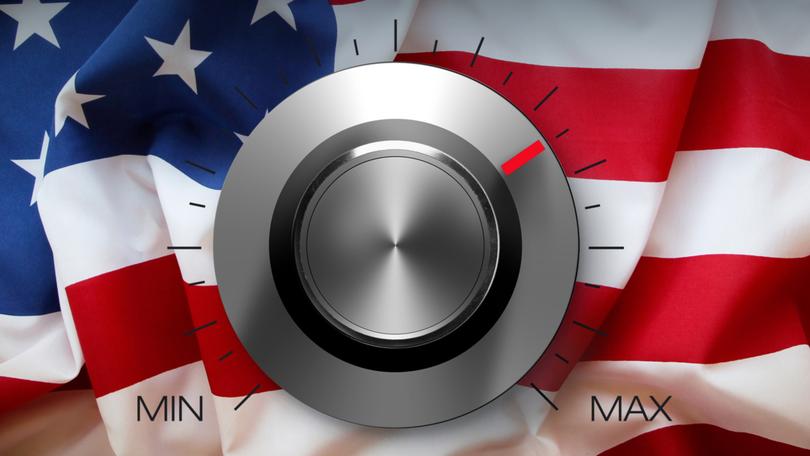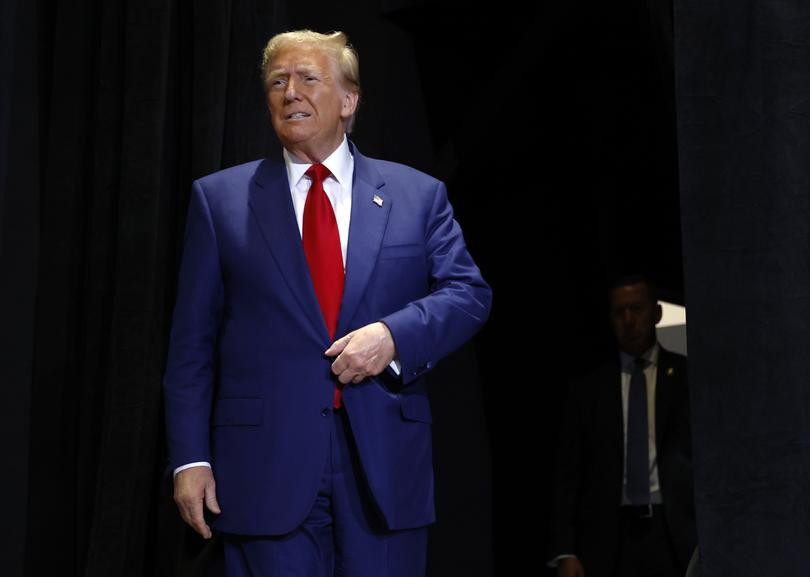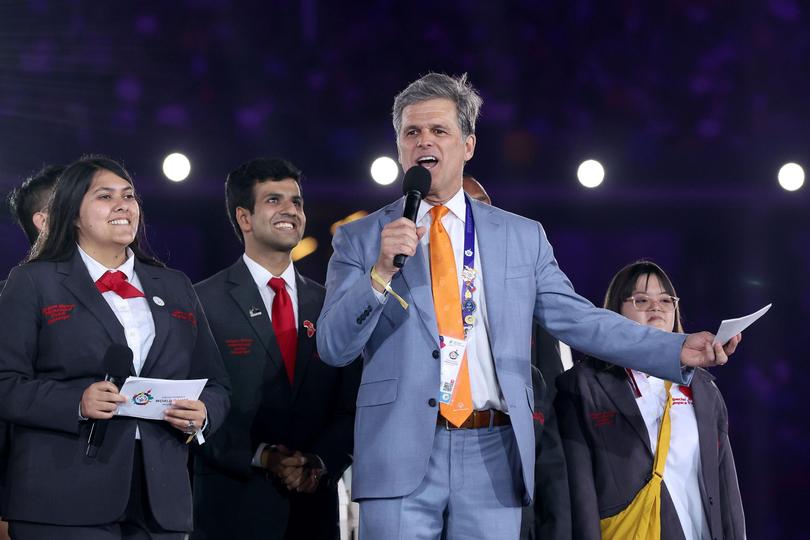LATIKA M BOURKE: JFK’s nephew warns of consequences if US politicians don’t tone down hateful rhetoric
The nephew of former US President John F Kennedy has warned people with intellectual disabilities will be in danger if US politicians don’t stop spewing contempt for their opponents.

The nephew of former US President John F Kennedy has warned people with intellectual disabilities will be in danger if US politicians don’t stop spewing contempt for their opponents.
Dr Timothy Shriver is the son of the late Eunice Kennedy Shriver, who was the sister of the former president whose assassination in 1963 shocked the world.
Dr Shriver has continued the work of his mother who formed Special Olympics for children and adults with intellectual disabilities.
Sign up to The Nightly's newsletters.
Get the first look at the digital newspaper, curated daily stories and breaking headlines delivered to your inbox.
By continuing you agree to our Terms and Privacy Policy.In an exclusive interview with The Nightly from the Greek port city of Thessaloniki, where the Special Olympics was awarded the prestigious European Empress Theophano Prize for its work in championing inclusion for those with intellectual disabilities, Mr Shriver said he feared for his community if America’s polarised political temperature didn’t come down.
“Our community is in danger if our politicians don’t tone down the hatred that they’re frequently putting into the society,” he said.
“Hatred is toxic, it causes mental illness, it causes division, it causes violence, it thwarts problem-solving and if our leaders don’t recognise that we have a crisis of connection that is being precipitated by a politics of contempt, we’re in bad shape.”
Political violence has been a theme of the current election campaign underway between former President Donald Trump and Vice-President Kamala Harris, following the assassination attempt in July when 20-year-old Thomas Crooks shot at Mr Trump during a rally in Butler, Pennsylvania and hit him in the ear.
Mr Trump’s insult-heavy and personal style of politics also extended to mocking a reporter with a physical disability in 2016.
Meanwhile, Democrats have warned that US democracy is at stake as well as a repeat of the civil violence on January 6, when an insurrectionist mob stormed the Capitol killing four, attempting to stop the transfer of power to Joe Biden in 2020, after Mr Trump falsely claimed the election was rigged.
The US goes to the polls in a week’s time in a tense race in which pollsters have charted a potentially winning late lead for Mr Trump, although say remains too close to call.
When asked if he was talking specifically about Republicans, Mr Shriver, who is DC-based and spends a lot of time on the Hill pleading the case for funding and services to properly cater for those with intellectual disabilities said both sides had slipped into a “dangerous blind spot.”
“No it’s on both sides, this issue is on both sides,” he said.
“The Republicans go: ‘Oh, it’s not us, it’s them.’ I’m going ‘Are you kidding me?’
“And I go to Democrats and they say: ‘It’s not us, we’re the tolerant, they’re the horrible, hateful jerks’ and then they spew a lot of contempt about the other side.

“Hatred is not a sustainable strategy on either side, if either side wins, they’re going to have to change course.”
Asked why this political environment made people with disabilities especially more vulnerable, Mr Shriver said it was because the community relied on functioning community relationships.
“Because they depend on relationships, their whole life is a relational life.
“Very few people with intellectual disabilities are excited to live alone.
“They not only need, but they want connection.
“And the more lonely the culture becomes, the more distrustful it becomes, the worse, it is for them.”
Mr Shriver’s work running Special Olympics builds on the work of his mother who was appalled at the way children and adults with disabilities were treated by society and began running summer camps for children from her backyard in the 1960s. Eunice and JFK’s older sister Rosemary had an intellectual disability and was tragically lobotomised when she was 23.
“Her brother, five – ten miles away was the President of the United States,” Dr Shriver recalled.
“She chose instead to invite children with intellectual disabilities to come to her house.
“And she put on a bathing suit and she got in the pool and taught them to swim.”
She later told her son that all she wanted to do was prove that children with disabilities could swim just like children without.
Since Shriver’s backyard lessons, the organisation has grown into a worldwide movement for inclusion, involving more than 4 million people with intellectual disabilities. Special Olympics campaigns for the inclusion of people with disabilities in healthcare services and education, in schools, in sport, and in the workforce.
Mr Shriver said governments should be spending at least 3 per cent of their education budget on special needs services so that people with disabilities could be in school alongside those without disabilities.

He also did not back mandatory quotas for hiring saying it was better to “call people in” rather than calling people out.
He said getting people with intellectual disabilities into politics was also a practical way of helping problem solve better policies as well as helping dial down the anger in politics.
He has also created the bipartisan and independent Dignity Index which scores on a scale of one to eight, politicians’ contributions measuring their speeches and social media to determine whether they are stoking division or trying to bridge differences.

